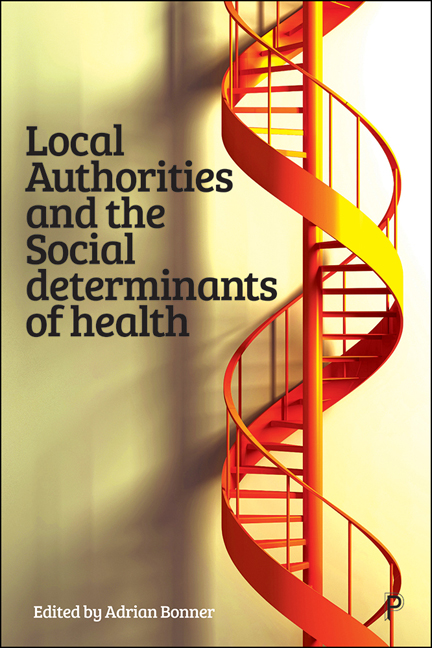Book contents
- Frontmatter
- Dedication
- Contents
- List of Figures, Tables and Boxes
- Notes on Contributors
- Acknowledgements
- Foreword
- Summary
- Introduction: Key Sociopolitical Changes Affecting the Health and Wellbeing of People
- Part I Health, Social Care and Community Wellbeing
- Part II The Role of Local Authorities in Promoting Health and Wellbeing in the Community
- Part III Local Authority Commissioning
- Part IV The Third Sector
- Part V Socio-Economic Political Perspectives
- Conclusion
- Appendix: COVID-19 Timeline
- Index
Introduction: Key Sociopolitical Changes Affecting the Health and Wellbeing of People
Published online by Cambridge University Press: 25 March 2021
- Frontmatter
- Dedication
- Contents
- List of Figures, Tables and Boxes
- Notes on Contributors
- Acknowledgements
- Foreword
- Summary
- Introduction: Key Sociopolitical Changes Affecting the Health and Wellbeing of People
- Part I Health, Social Care and Community Wellbeing
- Part II The Role of Local Authorities in Promoting Health and Wellbeing in the Community
- Part III Local Authority Commissioning
- Part IV The Third Sector
- Part V Socio-Economic Political Perspectives
- Conclusion
- Appendix: COVID-19 Timeline
- Index
Summary
Following on from Social Determinants of Health: An Interdisciplinary Perspective on Social Inequality and Wellbeing (Bonner, 2018b), this volume provides a unique insight into the relationship between health and housing, regional disparities and responses across England, Wales and Scotland in the provision of health and social care and local authority commissioning. While references to the health care system will be found in the book, its primary focus is on health as defined in the Constitution of the World Health Organization (WHO), which was adopted by the WHO in 1946 and has not been amended since 1948: ‘Health is a state of complete physical, mental and social well-being and not merely the absence of disease and infirmity’ (Anon, 1946).
The cultural changes leading to the development of the welfare state and contemporary system transformations are reviewed using examples of innovative approaches which involve shared responsibilities between statutory, third sector, community organisations and the private sector.
Cameron's Big Society (Anon, 2015a) was launched two weeks after the formation of the Coalition government following the general election of 6 May 2010. The key aims of the policy were, to increase ‘community empowerment’ by decentralisation with more power devolved to local councils and neighbourhoods; to promote ‘social action’ by encouraging people to play a more active role in communities; and ‘opening up public services’ by enabling charities, cooperatives social enterprises, and also private companies to compete in the delivery of public services.
Because we believe that a stronger society will solve our problems more effectively than big government has or ever will, we want the state to as act an instrument for helping to create a strong society … Our alternative to big government is the Big Society. (Cameron, 2009)
Cameron's Big Society can be traced back to Tony Blair's Third Way, which aimed to unlock potential within society, promoting social capital to provide added value to the state and financial markets. Gordon Brown promised to ‘empower communities and citizens and ensure that power is more fairly distributed across the whole of society’.
- Type
- Chapter
- Information
- Publisher: Bristol University PressPrint publication year: 2020



